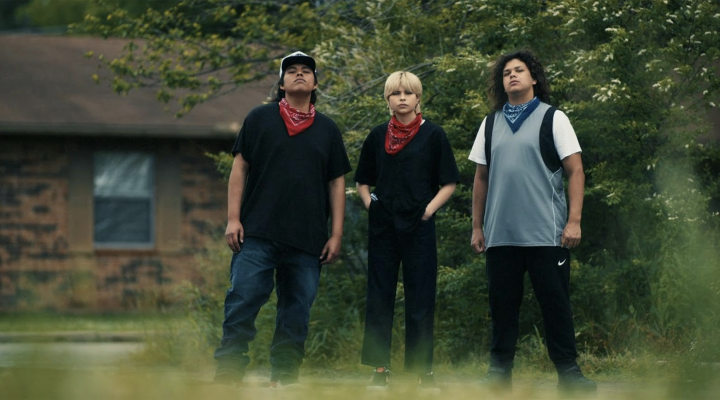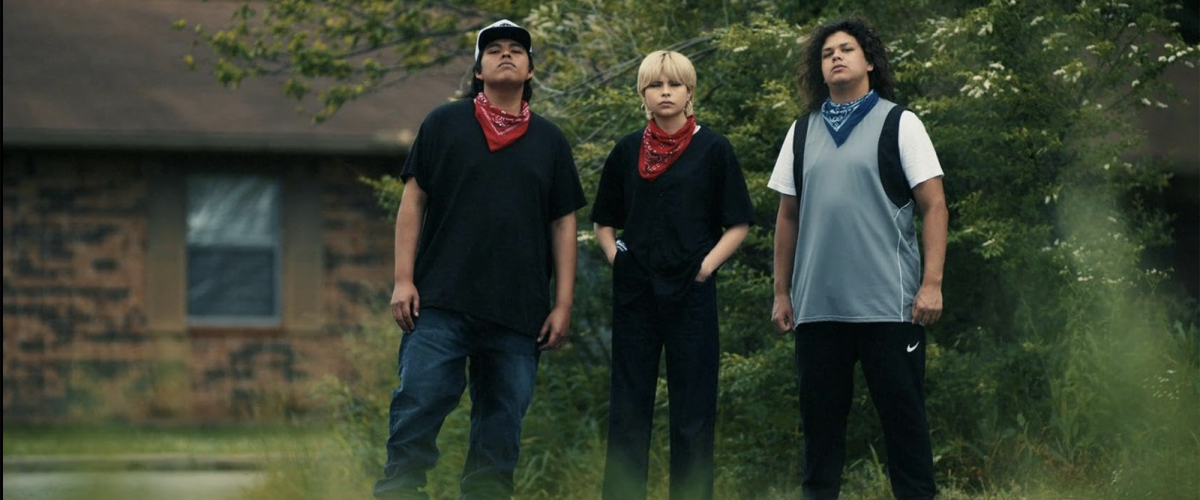One of modern television’s most beloved series came to a conclusion Sept. 27 when a group of Native American teenagers, once determined to leave the Muscogee reservation for California, decided to stay.
In three seasons, Reservation Dogs acquired a devoted fan base, accolades from critics calling it “a series to treasure,” and a Peabody Award for its authentic depiction of Native Americans.
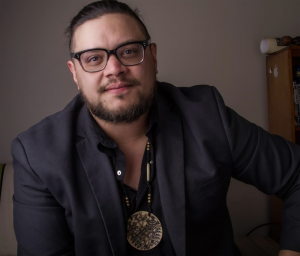
Sterlin Harjo (IMDB)
While viewers are sad to see the series end, co-creator and showrunner Sterlin Harjo (Seminole, Muscogee) believes the timing was right, “It’s a coming-of-age. And at some point, they come of age. I feel like it’s this perfect story. And it felt like it needed to end.”
In the first season, the teens are grieving the suicide of their friend Daniel. Such tragedies are an all-too-common occurrence among Native American young people, who are four times more likely to take their own lives than any other American racial or ethnic group. At first the “Rez Dogs,” as they call themselves, believe they can escape the problems that plague indigenous populations by leaving the reservation. However, by the third season, they realize the path to healing lies in staying and strengthening a community crushed by centuries of colonialism.
Harjo never shies away from these difficult topics, instead handling them with equal measures of humor and heart.
In the episode titled “Deer Lady,” written by Harjo and directed by Danis Goulet (Cree, Metis), the title character returns to haunt the site where an Indian boarding school once stood.
“I grew up with those stories, the stories of being told you can’t speak your own language,” Harjo said. The Deer Lady is a character from Native American folk lore with hoofs for feet, and the episode employs the aesthetic of a 1970s art-horror film to convey the terrible violence and abuse suffered by children at the school.
“It’s dark but it’s also cathartic, and I really wanted by the end of that episode a level of relief and release for people because the pain caused by boarding schools is real,” Harjo continued. “We feel it today and it’s all connected and we didn’t have a chance for that catharsis and that chance for healing.”
Using their voices
Now that Reservation Dogs has ended, Harjo and some of the cast members are using their voices to demand healing for native communities. Harjo, along with Dallas Goldtooth, and Georgeanne Growingthunder, recently joined with the National Native American Boarding School Healing Coalition to promote passage of the Truth and Healing Commission on Indian Boarding School Policies Act (Senate Bill 1723).
NABS was founded as a nonprofit in June 2012 under the laws of the Navajo nation to raise public awareness about Indian boarding schools and to create opportunities for healing the deep trauma experienced by individuals, families and communities.
“Not many people know this happened.”
“There’s so little known about everything, and not many people know this happened,” said Growingthunder (Assiniboine, Sioux), age 12, who portrayed the Young Deer Lady at the indigenous boarding school.
While Native American groups like NABS have been working diligently for years to tell the story of these schools, many Americans only became aware of them after the 2021 discovery of 215 bodies in unmarked graves at the Kamloops residential school in Canada.
In response, Secretary of the Interior Deb Haaland (Laguna Pueblo), launched the Federal Indian Boarding School Initiative to investigate boarding schools in the United States that forcibly assimilated Native American, Alaska native and native Hawaiian children. A few months later, Sen. Elizabeth Warren introduced The Truth and Healing Commission on Indian Boarding School Policies Act with support from co-chairs of the Congressional Native American Caucus, Reps. Sharice Davids (Ho-Chunk, D-Kan.) and Tom Cole (Chickasaw, R-Okla.).
“We know that thousands of our community’s children (and) future leaders were coerced, were torn away from families, by the federal government, by religious entities, to be assimilated into American society,” said Rep. Davids, speaking at a NABS event in support of the bill. “The students at boarding schools were not just forced to leave their families but forced to change themselves.”

D’Pharaoh Woon-A-Tai, Paulina Alexis, Lane Factor, and Devery Jacobs in Reservation Dogs (IMDB)
Gaining attention
The need for a commission to further investigate the schools became more apparent after the Department of the Interior released its report on Indian boarding schools in 2022, detailing the “rampant physical, sexual and emotional abuse; disease; malnourishment; overcrowding; and lack of health care in Indian boarding schools.”
On June 7, the Senate Committee on Indian Affairs unanimously passed Senate Bill 1723 out of committee after hearing additional testimony from survivors, their descendants, tribal leaders, advocates, churches, local governments and experts. Attorney Wilson Pipestem (Otoe-Missouria, Osage), who specializes in issues of tribal sovereignty, was present at the Senate sub-committee hearings and witnessed the impact of this testimony. “When people heard the power of stories being told about what has gone on in Indian country, and what has gone on in these schools, we saw people go from being concerned to being supportive.”
If the Truth and Healing Commission Act becomes law, its primary task will be to “formally investigate and document the histories of Indian boarding schools, relevant U.S. policies, and the systematic and long-term effects on native peoples.” This investigation will not be confined to government institutions but will include religious ones as well.
More than 50% of assimilative boarding schools received “support or involvement” from religious organizations in the form of “funding, infrastructure and personnel.” In exchange, denominations were paid for every child they enrolled in a boarding school and given native land with its natural resources.
The 10-member Commission of Tribal and Native representatives and experts will be chosen by the president and the leaders of the Senate and the House of Representatives. The commission will be responsible for holding public hearings where survivors can share accounts of their time in assimilative schools. These sessions will provide “trauma-informed care for participants, attendees and communities” as well as private space for survivors and their families. The commission also will have authority to subpoena witnesses.
“It’s something that’s more recent than the Holocaust, and yet we don’t think about the Holocaust as something that was that long ago.”
“Not only are there a lot of survivors, there are a lot of perpetrators still alive,” said Benjamin Jacuk (Dena’ina Athabascan, Sugpiaq), indigenous researcher at the Alaska Native Heritage Center. “It’s something that’s more recent than the Holocaust, and yet we don’t think about the Holocaust as something that was that long ago.”
Church history
In addition to oral testimony, the Truth and Healing Commission will search the archives and historical records of governmental and non-governmental institutions involved with the boarding schools. This includes religious denominations and churches that may have operated a school, carried out Indian boarding school policies, or have relevant information to address the impact of such schools.
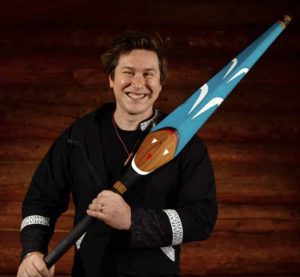
Benjamin Jacuk
Sadly, in his work researching the relationship between these assimilative boarding schools and the church, Jacuk says he already has encountered resistance from denominations. “I was talking to the American Baptists at their convention, (and) there was a point where that question was asked, ‘Sure you have proof, but why should we care?’ (It) is a two-pronged answer,” he said. “(I gave the) Scripture-based answer, talking about repentance and that kind of stuff, but also (I said), ‘You’re listed six times in a federal report as being complicit. A federal report that will be used in the Truth and Healing Commission, and there will more than likely be subpoena power with it.’ That is really what got their attention.”
“This right now is the grace period where churches, denominations, will be able to figure out their own history, ask after the full truth, (and) repent.”
Jacuk continued: “This right now is the grace period where churches, denominations, will be able to figure out their own history, ask after the full truth, (and) repent.”
The Truth and Healing Commission also will work with partners to determine the locations of the marked and unmarked graves of those children who died at the schools.
Dallas Goldtooth (Mdewakanton Dakota, Dińe), who plays the “warrior spirit” William Knifeman in Reservation Dogs, attended the repatriation of two Dakota boys who died at the Carlisle school in Pennsylvania. “There’s a lot of relatives we’ve lost through the boarding schools, and we’ve only been able to bring some of them home,” he said. “A lot of children still remain in those boarding schools, and that’s what this commission is about.”
More education needed
Educating the public on the history of the Indian boarding schools and their impact will be another of the Commission’s duties. Reservation Dogs already has made a significant contribution toward raising awareness, and Sterlin Harjo is eager to do even more.
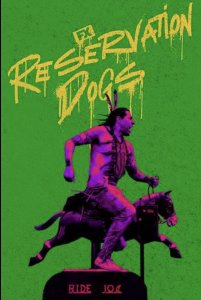 “I want to do a spinoff where you can get more into it. (“Deer Lady”) was about the show, but it also was about my grandparents and trying to bring some light and truth. To this day people didn’t know what that was. Non-natives (are) saying, ‘I’ve never heard of this.’”
“I want to do a spinoff where you can get more into it. (“Deer Lady”) was about the show, but it also was about my grandparents and trying to bring some light and truth. To this day people didn’t know what that was. Non-natives (are) saying, ‘I’ve never heard of this.’”
Once its work is completed, the Truth and Healing Commission will make recommendations to Congress and the president regarding necessary legislative and administrative actions. Some of these will concern public memorials and the return of indigenous artifacts. However, the most important outcomes will be improved mental health care for survivors and an end to “modern-day assimilative practices conducted by state social service departments, foster care agencies and adoption services.”
“This is an absolutely necessary part for healing to even start,” said Rep. Davids, who plans to introduce a similar bill in the House. “Understanding the impact is part of making sure that we’ve got the House and Senate doing what’s necessary.”
Resources available
The Congressional Budget Office currently is analyzing the Truth and Healing Commission on Indian Boarding School Policies Act to estimate the bill’s financial impact before it is voted on by the full Senate. In the meantime, NABS has assembled a toolkit to help supporters lobby for passage of the bill. It includes social media resources, ways to contact Congress, and a template that churches or other organizations may use to craft a Resolution of Support.
The commission already has been endorsed by the Episcopal Church, Evangelical Lutheran Church in America, Franciscan Action Network, Friends Committee on National Legislation, the United Methodist Church, Christian Reformed Church of North America, and the Jesuit Conference Office of Justice and Ecology.
In partnership with the National Center for Truth and Reconciliation in Canada, NABS also has created a digital map detailing the locations of both countries’ boarding schools. When users click on each school, they get access to general information about the school including location, dates, history and the school’s administrators. This November, NABS will launch an archival database — the National Indian Boarding School Digital Archive — to connect the online map directly to archival records.
“A lot of this stuff has been forgotten on purpose.”
Entries for the 105 schools funded solely by religious organizations, however, will be more difficult to come by because those records are located deep within denominational vaults.
“A lot of the stuff, even within the last 20 years, has been forgotten; but something that the Presbyterians have said is, ‘A lot of this stuff has been forgotten on purpose’,” said Jacuk, who worked closely with the Presbyterian church while completing his master of divinity and master of theology degrees at Princeton. “Stuff like this isn’t just meant to just disappear without a reason.”
To augment archival material, NABS is working with the Department of the Interior and the National Endowment for the Humanities on an oral history project. In addition to recording stories from boarding school survivors across the country, the NEH also will digitize written records of survivors’ experiences.
While discovering the truth of Indian boarding schools will no doubt be a painful process, Harjo believes the work is necessary for the indigenous community, and the nation as a whole, to heal.
“Reservation Dogs was one step in the right direction of showing people who we really are and telling the truth about our communities,” he said. “You can heal yourself by looking at yourself; but you have to look at the blemishes as well, you can’t just look at the beauty.”
Related articles:
Orange Shirt Day calls attention to the horrors of native boarding schools
Upcoming Supreme Court decision could take more native children off the reservation
It’s past time to unearth and acknowledge our role in Native American boarding schools

